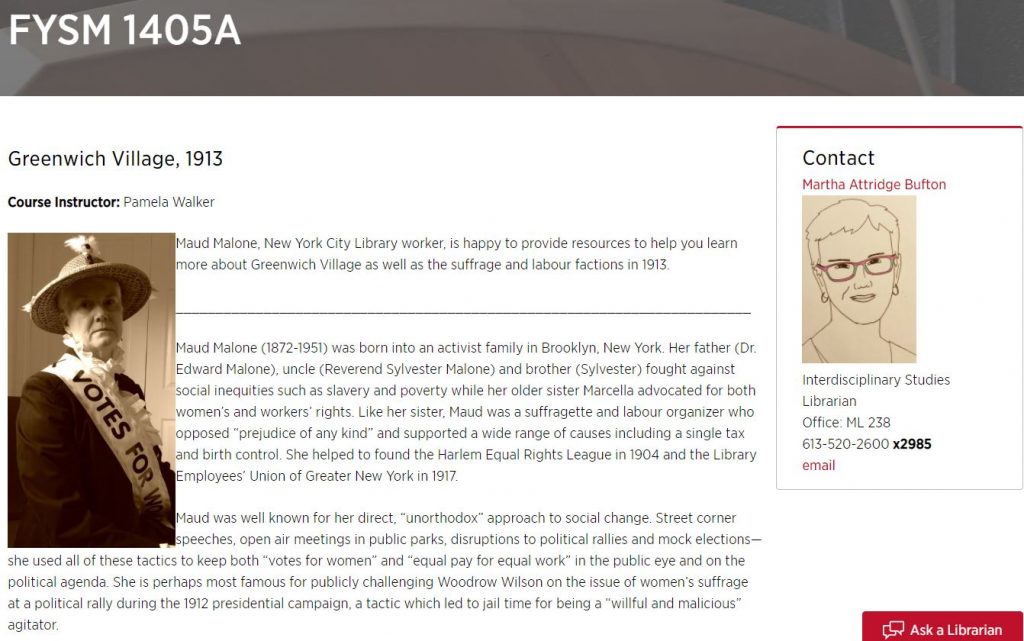My main goals as an educator are to teach students to:
1) think critically about their information needs
2) develop effective approaches to discovering and accessing information
3) reflect on their information seeking behaviours.
My challenge is to create positive learning environments where this learning can happen because I am working with individuals and groups who already have relationships with information that they may not want to change. As such, my teaching is framed by three principles: Understanding learning, guided inquiry, and safety.
Undertanding learning
Students come into classrooms with ways of thinking and doing that are effective in their everyday lives and are often asked to challenge their status quo and be different. If the process feels uncertain or negative, students may resist new ideas. I see this resistance frequently when teaching students how to find academic materials. Often due to a desire to succeed, they default to using information seeking strategies that have worked in the past (“Google is my best friend!”) rather than using unfamiliar search systems to find scholarly works. To lower emotional and cognitive barriers to changing their information seeking behaviour, I design classroom activities that start where students are “at” and then move them towards new behaviours.

For example, when teaching first-year students to find a peer-reviewed journal article, I lead them through a lesson in which they begin by brainstorming words that describe an image related to a core course theme. From this initial group activity, they move progressively towards using the basic library discovery system to find an academic article. Each time I use this activity, I notice that students seem to become progressively more confident with new tools and processes as well as with asking questions when they do not understand. By feeling “good,” students are open to thinking more strategically about how to find the information they need to be successful in a course.
I have also created a librarian character for a Reacting to the Past game: Greenwich Village 1913. Find out more about The Making of Maud Malone: Creating a role for library instruction in Reacting to the Past.
I am also collaborating with colleagues from Saint Paul University and Carleton University on a provincially funded online for-credit course in research foundations and information literacy entitled Imagine|Question|Search|Synthesize: Critical foundations for undergraduate research

Guided inquiry
Students are actively constructing meaning as they move through their scholarly work and my role is to support them as they build bridges when they meet gaps in their skills and knowledge. I can intervene appropriately, by teaching practical skills and encouraging the critical thinking that will transform them as scholars but at all times I must respect the life experiences, skills and ambitions they bring to their learning. As such, my role is to guide their inquiries as they learn how to identify, discover and access the materials they need for coursework.
My lessons are planned to be participatory and experiential, which often includes large group discussions. During these conversations, my role is to create a learning space in which students feel comfortable to voice their thoughts and opinions. I may support their thinking but never try to “bank” knowledge in them.
Safety
North American educational history is partly the story of denying diversity and oppressing individuals and groups. In a period of rebuilding relationships between the mainstream and marginalized peoples, I must be culturally competent and respect the diverse backgrounds and traditions of the students with whom I work to create safe learning environments. As a result, I have redesigned the core information literacy sessions for students in the Indigenous Enriched Support Program in order to create learning environments in which Indigenous students feel empowered to challenge systems and information practices.
One measure of success is that now I am invited regularly into Ojigkwanong to hold research consultations. Ojigkwanong is the Indigenous students’ centre at Carleton University.